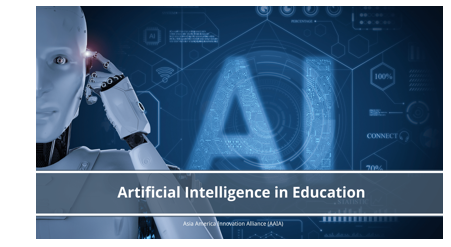INP-WealthPk
Amir Saeed
Adopting AI education can change the country’s economic landscape by cultivating a skilled workforce capable of driving innovation and addressing the longstanding economic challenges.

Talking to WealthPK, Maher Nafees, senior software engineer at Rin Technologies, said Pakistan faced significant challenges, including a high unemployment rate, an inadequate educational infrastructure, and a lack of access to modern technologies. “The youth, comprising roughly 64% of the population, is typically ill-equipped for the global job market demands. Without sufficient expertise in AI and related fields, many young individuals cannot contribute effectively to the economy. By addressing these problems through AI education, the government can empower the youth while providing them with skills that are in high demand domestically and globally,” he added. “Programs like AI-focused seminars and coding boot camps would introduce students to the concepts of machine learning and data analytics, empowering them to come up with solutions for local challenges, from healthcare to agriculture. This strategy would not only help graduates find employment but also support their entrepreneurial endeavors.”
He opined that by encouraging research and development (R&D) at colleges and other institutions, AI education would promote economic expansion. By establishing partnerships with tech companies and international organizations, educational institutions can create innovation hubs where students and professionals work together on cutting-edge projects. Talking to WealthPK, Wajahat Hafeez, digital products and solutions head at NayaTel, highlighted that the inclusion of AI education in the curriculum had the potential to greatly improve the students’ creativity and problem-solving skills. By incorporating practical instruction, workshops, and real-world projects, educational institutions can create an environment that promotes innovation. “Such partnerships may result in the creation of indigenous AI solutions suited to the country’s particular problems, ultimately advancing technology and attracting foreign investment,” he said. He opined that increasing the availability of digital resources was one of the most important ways to advance AI education.
In rural areas with inadequate educational resources, the public and private sectors might collaborate to provide affordable internet access and digital learning platforms. He further opined that online courses and platforms may expand access to AI education, enabling students from different walks of life to learn and engage with the advanced technologies. Furthermore, public-private partnerships would be instrumental in providing scholarships and financial support to deserving students pursuing AI-related fields. “Another vital component is the training of instructors to teach AI concepts effectively. It is important to start professional development programs so that the instructors have the tools they need to instruct AI effectively.” He suggested that by promoting a culture of continuous learning among the instructors, the government could ensure that future generations receive high-quality education in AI and related fields. This investment in instructor training would be essential for building a solid educational foundation that promotes innovation.
Credit: INP-WealthPk













